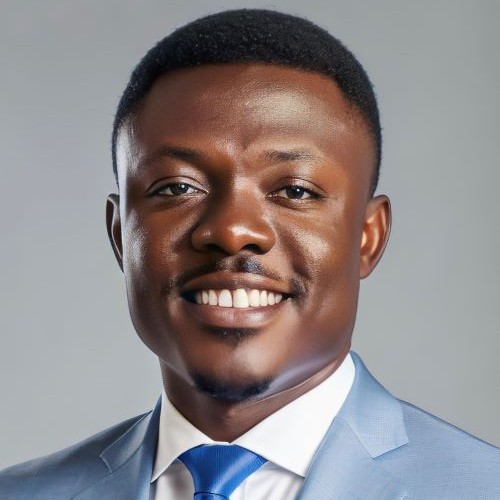Dr Osei Asibey Owusu is a medical doctor and a First Year PhD student in Clinical and Biomedical Sciences in the Faculty of Health and Life Science.
His PhD will use AI and Deep Machine Learning in Quantitative Data Modelling to learn and Predict how Blood Pressure Trajectories affects Cardiovascular and other Morbidity Outcomes in Older Adults. In this blog post, Osei explains about AI in modern medicine.
Check out Osei’s blog post on the ethical dilemma in AI-powered clinical research.
In the ever-evolving landscape of healthcare, the integration of Artificial Intelligence (AI) has emerged as a groundbreaking force, revolutionizing diagnostics and paving the way for a new era of precision medicine. Imagine a world where diseases are detected earlier, treatments are more effective, and healthcare is tailored precisely to individual needs. AI is turning this vision into reality, reshaping the way we diagnose illnesses and ultimately improving patient outcomes.
Understanding AI in Diagnostics:
At its core, AI refers to the development of computer systems that can perform tasks requiring human intelligence. In diagnostics, AI algorithms analyse vast amounts of data from various sources, including medical images, patient records, and genetic information, with remarkable speed and accuracy. This analytical prowess allows for the early detection of diseases such as cancer, diabetes, and cardiovascular disorders, often before symptoms manifest.
Early Detection, Enhanced Treatment:
One of the most significant advantages of AI in diagnostics is its ability to detect subtle patterns and anomalies within medical data. For instance, AI-powered imaging systems can identify minuscule changes in medical images that might go unnoticed by the human eye. Early detection enables healthcare professionals to intervene at the earliest stages of diseases, offering patients a higher chance of successful treatment and recovery.
Tailored Healthcare:
AI doesn’t stop at early detection. It plays a pivotal role in tailoring treatments to individual patients. By analysing a patient’s genetic makeup and medical history, AI algorithms can predict how a specific treatment will affect them, allowing doctors to prescribe personalized therapies. This level of precision minimizes adverse reactions and maximizes the effectiveness of treatments, leading to better overall outcomes.
Accessible and Affordable Healthcare:
AI applications in diagnostics are not limited to advanced medical centres. With the advent of mobile technology, AI-powered diagnostic tools are becoming accessible even in remote areas. Portable devices equipped with AI algorithms can conduct preliminary screenings, empowering communities with limited access to healthcare resources. Moreover, the efficiency of AI-driven diagnostics reduces the overall cost of healthcare, making quality medical services more affordable and sustainable for everyone.
Embracing the Future Together:
As we embrace the transformative power of AI in diagnostics, it’s crucial for both the medical community and the public to stay informed and engaged. For healthcare professionals, continuous education and training are vital to harness the full potential of these technologies. For the public, understanding the benefits of AI in healthcare empowers individuals to make informed decisions about their health and well-being.
In this exciting era of AI-driven diagnostics, we are not just witnessing advancements in technology; we are witnessing a revolution in healthcare. The synergy between human expertise and artificial intelligence is reshaping the diagnostic landscape, offering hope and healing to countless lives.
As we move forward, let us stand united in our quest for a healthier, more connected world, where the fusion of human compassion and AI innovation leads us toward a future where no disease goes undetected, and every individual receives the care they deserve. Together, we are writing a new chapter in the history of healthcare, chapter where the possibilities are boundless, and the impact is immeasurable.

